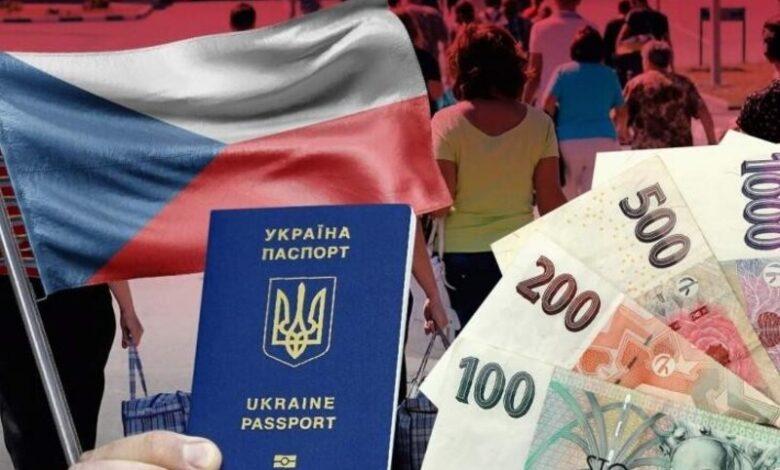A practical guide has appeared in the Czech Republic to help Ukrainian refugees find work

Those who left Ukraine after the start of a full-scale war understand well: receiving temporary protection does not mean settling down. The real challenges begin when a person tries to find a job in a country whose language he does not know, and whose system he is only learning. The Czech Republic has received one of the largest number of Ukrainian refugees in Europe: according to the Ministry of Internal Affairs of the Czech Republic, more than 370,000 Ukrainian citizens have the status of temporary protection as of 2025. And most of them are able-bodied people, but the labor market is a difficult environment for them. Especially if they do not have experience working abroad, do not understand Czech labor law or are afraid of becoming a victim of fraud.
Prague reacted specifically to this. A special guide was created for Ukrainians looking for work. It is accessible, written in understandable language and covers all practical matters: from resume writing to infringement consultations. The Guide was concluded by specialists of the Ukrainian Consulting Center in Prague together with human rights defenders and labor law experts. This is not another brochure with general advice, but a working document designed for those who open job sites every day, do not understand whether to trust the employer, and do not know what to do if the salary has been delayed for the second month.
In this manual, everything is presented systematically. First, where to look for vacancies. Five main platforms are listed: the state labor exchange, Prace.cz, Jobs.cz, EURES portals, as well as the job search section on Facebook and Telegram. In each case, specific recommendations are provided on how to filter ads so as not to come across fake or fraudulent ones.
A separate section is how to properly prepare a resume. The Czech Republic has its own peculiarities. For example, a photo is desirable, but not necessary. The date of birth is indicated, but questions about children or marital status are prohibited by law during the interview. The guide has several resume templates for different categories: labor specialties, service, office work, education. Examples of cover letters are also offered – how to briefly and accurately explain why you are applying for a job if you do not have perfect knowledge of the Czech language.
The most important block is legal. Here it is explained how a typical employment contract in the Czech Republic looks like, which must be specified: length of working hours, hourly or monthly rate, sick leave conditions, trial period. The so-called DPP (work performance contracts) and DPČ (employment contracts) are common in the Czech Republic. For many Ukrainians, these terms are incomprehensible – they are often confused with full-time employment, although they do not always include insurance years or social guarantees. The guide explains the difference and why it’s important to check the terms before signing.
A separate part of the guide is devoted to checking the employer. Step-by-step instructions are given on how to find a Czech company in the official register by its identification number (IČO), to see if it is not in a state of liquidation, if it has debts or lawsuits. This is critically important, because among Ukrainians who agree to work without a contract or through intermediaries, many have faced non-payment, fines or violations of labor rights. The guide contains examples of real cases – with the names changed, but the situations are real: delay of salary for three months, fictitious deductions “for housing”, blackmail of an employee by dismissal without payment of earnings.
Another section is interview behavior. In the Czech Republic, the law clearly regulates which questions are inadmissible. For example, an employer has no right to ask how many children you have, what your religion is, or who you support in an election. If this happens, it is grounds for a complaint. The manual explains how to behave in such situations, without provoking a conflict, but fixing the violation.
It is also important that the guide contains a list of organizations that provide free legal aid. There are consultation centers in Prague, Brno, Olomouc, Pilsen where you can get clarification in Ukrainian, file a complaint with the labor inspectorate or prepare a claim. For those who cannot apply in person, there are contact numbers, email addresses and sample documents that you can fill out yourself.
Hyde does not idealize the labor market in the Czech Republic. It clearly states that there are sectors where violations of workers’ rights are systemic: these are warehouses, cleaning, production. But statistics are also given: more than 60% of Ukrainians who are legally employed have at least the minimum wage (19,500 Czech crowns), and 40% have a higher wage. Gradually, the number of Ukrainians who move to professional positions or open FOP is increasing. The guide doesn’t promise quick success — but it does explain how to avoid basic mistakes and reduce risks.
You can get the guide for free. It is available in PDF format on the website of the Ukrainian Consulting Center in Prague. It can also be found in printed form at aid stations in Prague, Brno and several other cities. Translation into English and Czech is planned so that people can show the document to the employer or the translator.
The manual is already used as educational material in retraining centers. It is not advertised on social media – but it is passed from hand to hand among those who are actually working or preparing for an interview. And this makes it much more valuable than advertising projects or superficial instructions. In reality, where there are no extra resources, a clear and concise guide in Ukrainian is exactly the tool that was missing.





